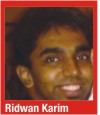Debater 's Diary
The Wonders of the Worlds

‘Worlds,' also known as the World University Debating Championship (WUDC), is one of the biggest annual international student event in the world. The format of the debate, consisting of four teams of two members each, has proved itself to be an inexplicable enigma for many debaters from Bangladesh, who are used to the 'Asians' format where only two teams square off against each other. Tarek Abdullah Al Munim (TAAM), a graduate of Institute of Business Administration (IBA), University of Dhaka, confronted the challenge of adapting to this remarkable format of debate when he represented IBA in the MMU Worlds 2005. He shared his insight with Star Campus on what a budding debater must do in order to conquer the 'Worlds,' the grandest stage for debating.
SC: What is the most significant difference between the traditional format of debating and the Worlds format?
TAAM: In the Worlds format there are two sides for the motion and two against it, but there can only be one winner. So, if you are the closing government, you have to essentially support the cause of the opening government, but at the same time strive to prove yourself better than them tactfully and ingeniously. Similarly, if you are the opening government, you have to master the art of coming up with a definition that limits the leeway for the closing government. To put it bluntly, the Worlds format teaches you to engage in office politics. It might not necessarily be a good thing, but it is very challenging nonetheless.
SC: Which format do you find more fascinating?
TAAM: Because of its inherent flexibility, the Worlds format can measure how lateral you are in your thought processes and to what degree you can anticipate the arguments that your opponents are going to come up with. You may have to face topics like 'The Pope should get married,' or 'The Red Brigade is bound to lose.' And because you have to debate on the definition of the motion and not the motion itself, the ability to preempt your opponents with imaginative and well-constructed arguments is vital.
You also have to learn how to establish the logical connection between the evidence you presented and the conclusions you drew. Suppose you are the closing government and the motion is 'Celebrity criminals should be given harsher sentences.' The opening government may come up with predictable arguments regarding how celebrities like actors and singers should bear more responsibility for their actions because of the greater influence that they have on society as a whole. Now you have the license to introduce an entirely new dimension to the debate as long as you provide a precise logical link. You can equate politicians with celebrities, the logical bridge being the degree of fame that an individual enjoys. These examples go on to show that the Worlds format is extremely thought-provoking and stimulating.
SC: Do you believe that Bangladesh has a lot of catching-up to do with the rest of the world?
TAAM: Because of the natural divergence in human orientations in different regions of the world, teams from Bangladesh find it very difficult to advance through to higher rounds in the WUDC. Much of the norms and guidelines of the Worlds have been shaped predominantly by the West. That is why, although it is expected that debaters from Bangladesh will have adequate information regarding NAFTA (North American Free Trade Agreement), it is not necessarily expected that debaters from the UK or Australia will know about SAFTA (South Asia Free Trade Agreement).
The approach in Bangladesh is to provide as much evidence as possible to substantiate the arguments provided. However, adjudicators in the Worlds tend to emphasize on political correctness and flamboyance in the manner that you deliver your speech. But if debaters from Bangladesh stick to their distinctive style of debating, they will excel in their professional career as well as become better human beings.
SC: What advice will you give to a budding debater?
TAAM: Debating should not be taken as an end in itself, but as a means to an end. A debater should strive for excellence in order to achieve his/her full potential, but winning debates should not be the priority. It is the quickness and the sharpness of analytical prowess and decision making ability that a youngster should try to retain from his/her experience of debating, rather than focusing on only becoming champions of debate competitions. These skills will help you to excel in your professional career, whether you want to be a teacher with excellent presentation abilities, or a successful business executive working in an atmosphere where rapid decisions need to be taken.
| 